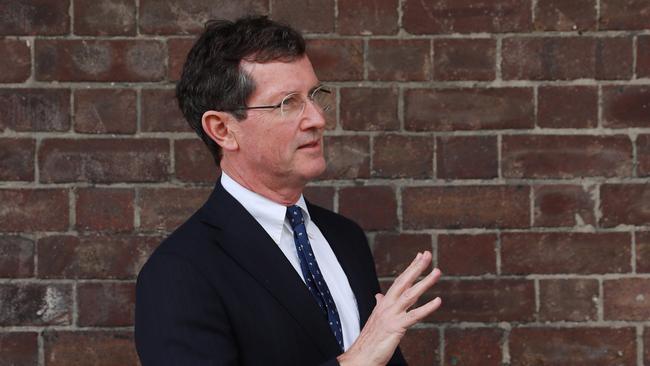Bringing objectivity to financial advice
Koda Capital’s Frank Macindoe provides financial advice for some of the wealthier people in Australia as well as charities and not-for-profit organisations.

Koda Capital’s Frank Macindoe provides financial advice for some of the wealthier people in Australia as well as charities and not-for-profit organisations. He and others in his firm make their money by charging for financial advice. But Macindoe worries that the increasing regulation of the sector means that the cost of good financial advice is becoming too expensive for ordinary Australians, despite the fact they really need it.
“One of the key challenges is that there has been a lot of well-intentioned legislation aimed at reducing the chances that people will be given bad advice,” he says. “But the trouble is that it imposes a lot of costs. It means the cost of providing advice has gone up. It means Mr and Mrs Jones will struggle to get advice at what they would regard as an affordable price.”
Macindoe worries that the growing regulatory burden and requirements for higher qualifications including university degrees is prompting too many long-time financial advisers to leave the industry. “(This) means there is a diminishing portion of the Australian population which is getting advice. I wonder if it is really in the public interest that there are 100 people who aren’t getting bad advice but thousands a year getting no advice because they can’t afford it.”
In full: The List - Australia’s 100 Top Financial Advisers
Macindoe did not start out as a financial adviser. With law and arts degrees from the University of Melbourne, he began in 1976 as a corporate lawyer advising on deals in Australia and London, including the corporate collapse of Adsteam Group and Bond Brewing and the privatisation of electricity companies in Victoria. But he always had an interest in investing his own money and a “long and abiding interest in the markets”. He made mistakes and learned some hard lessons about investing, including the importance of paying attention to economic cycles and the potential for booms and busts in sharemarkets: “You always remember the mistakes you make with your own money and you learn from those mistakes.”
But while he rose to become a partner at one of Australia’s top law firms, then called Blake Dawson, he found investing was his passion and in 2002 made the big career move — walking out on a top job in corporate law to become a financial adviser in private wealth management, joining national broking and advisory firm JBWere.
Macindoe became one of JBWere’s most successful financial advisers, working there for 16 years. While there he took on several extra roles including trustee for the Goldman Sachs & JBWere superannuation fund, a role that included chairing its investment committee and one that provided invaluable lessons.
“When you are responsible for other people’s money you learn a lot from running your own money and the mistakes you make,” he says. “You are in full view of everybody. If you stuff it up, everyone is going to know.”
In 2018 he was approach by former JBWere colleague Paul Heath, who had left in 2015 to set up his own firm, Koda Capital, with former MLC chief Steve Tucker. Seeing the chance to work for an independently owned financial advisory firm, Macindoe joined Koda Capital as an adviser and partner. The move was like a return to a law firm, he says, where the sole focus is to provide the best advice for their customers. “When you are giving advice as a lawyer it is the same thing. People want well-informed, well-analysed and unemotional advice. Even when they are feeling emotional, they need someone else to bring objectivity to it.”
Macindoe believes technology — think robo advice — can help provide low-cost advice, but only to a point.
“One of the challenges in being a good financial adviser is that first you have to come up with a good piece of advice or a good plan for what someone should do,” he says. “But then you have to persuade them to accept that advice. To do that, you need to be able to talk to them directly and talk things through. Most people need to sit down in front of an adviser for a few hours. The adviser can prepare some advice for them and they need to come back for a few hours later. But with the nature of legislation these days you have to produce 70 pages of written advice for them which they probably won’t read.”


To join the conversation, please log in. Don't have an account? Register
Join the conversation, you are commenting as Logout